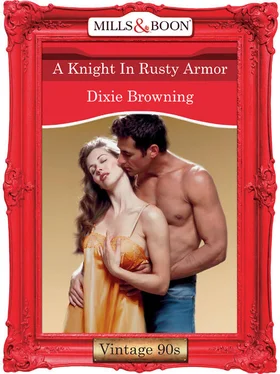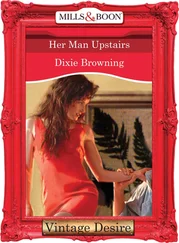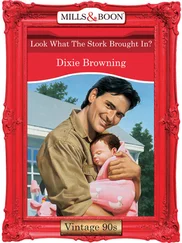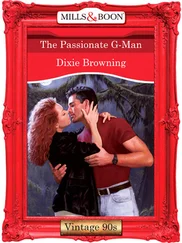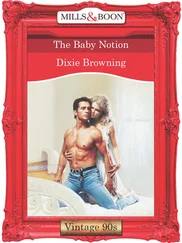“That makes two of us.”
“I’m sorry. I’m being silly about this, I know—it’s just that I don’t really know anything about you, yet you’ve taken me in and fed me, given me your bed—given me the shirt off your back. Literally.” Her voice was still husky, but it no longer sounded quite so painful.
“No big deal. Anyone would’ve done the same thing.” As the bag he’d brought along the first night had held mostly shoes, he’d lent her a pair of his old sweats to sleep in, and because her sweater was still damp, he’d lent her a flannel shirt.
“Maybe not to you. I don’t know what I would’ve done if—” She rolled her eyes. “I talk too much. I always do when I’m uncomfortable. Why don’t I just go change your bed and pop the linens and sweats into the washer before I leave? I appreciate all you’ve done, I really do.” She stood up, all five feet six or seven inches of her. All hundred fifteen or so pounds, nicely—if somewhat too sparsely—distributed.
“Don’t bother,” he said, his gaze following her as she walked away. Her hips swayed, they didn’t twitch. It was a subtle distinction, one he didn’t normally notice and didn’t even know why he was noticing now. “I’ll wash ’em next time I get up a load.”
Pausing in the doorway, she glanced over her shoulder. “It’s the least I can do before I leave.”
He shrugged. If she wanted to do his laundry, who was he to stop her? She wouldn’t be going anywhere today, though Too many bad stretches of road that weren’t going to get much better until the scrapers could get down here and uncover any highway that was left under all that sand.
Besides which, her car was a total loss. One of the linesmen had taken a look at it while he was out checking poles. They might be able to use it to help fill up any washout, but that was about all it was good for. He hoped she had insurance on the thing.
She dragged her luggage into the living room, and then she looked at him expectantly. He pretended not to notice. Whether or not she realized it, she was in no condition to go off on her own, even if she had a means of transportation. Whatever bug she’d had had knocked the starch out of her.
This situation was getting pretty dicey. Unfortunately he couldn’t come up with a single regulation that covered it. “I’ve got work to do,” he muttered.
“But—”
“Road might be clear by this afternoon. I’ll check it out in a couple of hours.”
While he laid out another wall of paneling in the room that would be Matt’s, Trav tried to come up with a solution. The woman was sick. She was without transportation and Hatteras Island didn’t run to streetcars and taxis. The friend she was expecting to visit was currently unavailable, and as for the job...
Dicey situation. About all he could say for it was that it took his mind off the frustration he’d felt ever since he’d learned about his son.
Trav had always considered himself a patient man. He worked hard at cultivating the trait. His father hadn’t had the patience to deal with a wife and a son. His cousin Harrison had ended up in the coronary care unit before he’d learned that a man had to accept certain limitations and shape his life around them the best way he could, if he wanted to survive.
He held up another board and reached for his hammer. Working outside on a pair of sawbucks, he’d measured and cut all the paneling to size before the weather closed in. His carpentry skills were on a par with his housekeeping skills. Adequate, with room for improvement.
Most of the work had been contracted, but he’d wanted to do as much as possible with his own hands, not only to save money. There was a lot of satisfaction in building a home for his son with his own hands.
“Do you want coffee?” Ruanna Roberts called out from the kitchen. Evidently she’d given up on waiting for him to offer to drive her wherever she was going.
He should have offered to drive her to the nearest motel or, at least, the nearest one that was open this time of year. Rescuing survivors was second nature to a man with his training. Rescuing, offering shelter. That much he’d done without hesitation, only what now? He had an uneasy feeling the job wasn’t done yet.
“Travis? Coffee?”
“Yeah, sure—thanks.”
Come to think of it, he could use something hot to drink. His chest ached, probably from trying to sleep on his stomach on the sofa with his feet hanging off the edge. His throat felt kind of dry and scratchy, too, from all this talking. He wasn’t used to having company.
She made good coffee. “What’s this stuff?” He eyed the plate she set before him suspiciously.
“Sugar toast. Haven’t you ever had sugar toast?” The look on his face told Ruanna all she needed to know. He’d never heard of sugar toast. “If I could’ve found your cinnamon, it would have been cinnamon toast. You know—butter, sugar and spice?”
“Yeah, sure.”
The way he said it made her think he’d never even heard of cinnamon toast. Not that it was important one way or the other. All the same, she had to wonder what his childhood had been like. Cinnamon toast had been one of her favorite treats as a child. Maybe it was a girl thing.
“It’s beginning to clear up,” she observed. Sooner or later it had to. She’d been here three days and had yet to see the sun.
Of course, she’d slept through the first two days. Whatever had ailed her, it had been no mere cold. Flu, more than likely.
As for the depression she’d been fighting off, she couldn’t really blame it on a virus. A person would have to be crazy not to be depressed when, one right after another, like a row of dominoes, her marriage had fallen apart, her family had been rocked by scandal and death, her identity was stolen, her credit rating ruined, her job lost. Let’s not forget the crank caller who had insisted on making her life hell. And then, on top of all that, her car had broken down, which forced her to throw herself on the mercy of a stranger.
Being depressed only proved she was sane.
“I’m afraid I’ve got some bad news for you.”
It was all she could do not to laugh. As if she’d had any other kind of news for the past few years. About the best thing that had happened to her lately was finding the owner of a stray cat that had shown up on her doorstep back in November. The last thing she’d needed was a cat.
But then, after it was gone, she’d cried for half a day. “Bad news? No thanks, I don’t care to hear it.”
He shrugged. “Your choice. Look, I’ve got to run out to check on a neighbor. Is there anything you need while I’m out?”
Only my car. Only my friend. Only my job and my life back. “I can’t think of a single thing, but thanks. If you’ll just give me the name of the garage where you had my car towed, I’ll see if it’s ready. It was probably only a clogged fuel line. It acted like it was out of gas, but I’m pretty sure...”
Her voice trailed off. She didn’t like the way he was looking at her, not quite meeting her eyes. “You’re going to tell me it’s not a clogged fuel line, aren’t you? It’s something more serious. Something expensive.”
Ru tried to remember how much money she had left after filling up the gas tank. Three twenties. One fifty. A few fives and several ones. It would have to last her until she was working again. She didn’t owe anyone anything, thank goodness. She would never trust credit cards again; thankfully, she’d learned to get by on practically nothing.
The car had been a necessity. An expensive one, as it turned out—but she could hardly have walked from Atlanta to the Outer Banks. It had been the cheapest thing on the lot, and the dealer had assured her that aside from peeling vinyl and a few dents, it was basically sound. When she’d asked if he thought it would get her to the Outer Banks, he had assured her that it was just what she needed for a long trip. Plenty of trunk space and a comfortable ride.
Читать дальше
